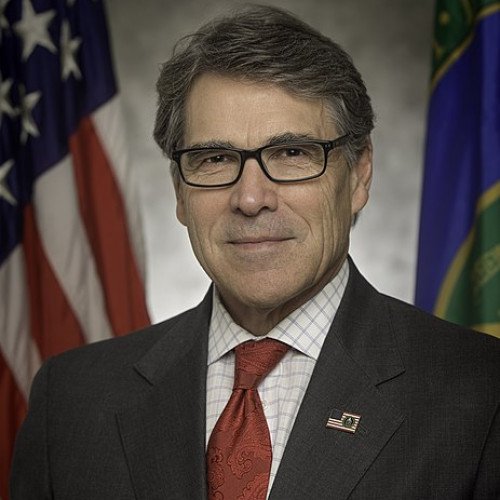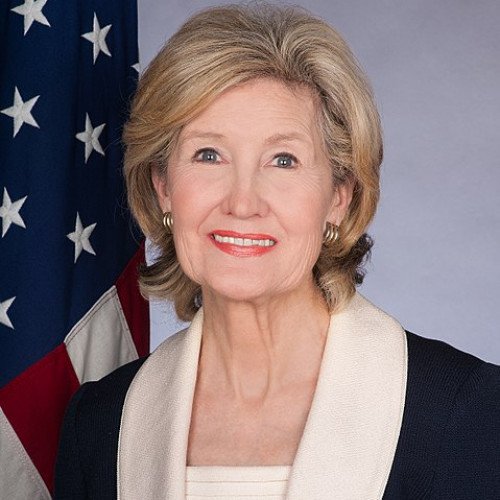Rick Perry VS Kay Bailey Hutchison

Rick Perry
James Richard "Rick" Perry (born March 4, 1950) is an American politician who served as the 14th United States Secretary of Energy from 2017 to 2019 and as the 47th Governor of Texas from 2000 to 2015. Perry also ran unsuccessfully for the Republican nomination for President of the United States in the 2012 and 2016 elections. Born into a family of cotton farmers in Haskell, Texas, Perry graduated from Texas A&M University in 1972 and entered into the United States Air Force, serving a five-year stint and achieving the rank of captain. After leaving the Air Force in 1977, Perry returned to Texas and entered politics, serving as a Democratic member of the Texas House of Representatives from 1985 to 1991. In 1989, Perry switched parties and became a Republican, and was elected Agriculture Commissioner of Texas the following year. In 1998, Perry was elected Lieutenant Governor of Texas, becoming the state's first Republican Lieutenant Governor since Reconstruction. Perry assumed the governorship of Texas in December 2000, after Governor George W. Bush resigned following his election as President. Perry was re-elected Governor three times, becoming the longest-serving Governor in Texas history. As Governor, Perry identified as a staunch conservative, enacting conservative fiscal policies, restrictions on abortion and expanded gun rights. Long considered a potential presidential candidate, Perry officially announced his candidacy for the 2012 Republican nomination for President in August 2011. Perry initially performed well in polling and showed strong fundraising prowess, leading to him being considered a serious contender for the nomination, however his support declined following poor performances in debates and early primaries and he withdrew from the race in January 2012.Perry declined to run for re-election to a fourth term as Governor and left office in 2015, launching a second presidential campaign shortly after. Perry's second presidential campaign failed to garner substantial polling support, fundraising or media attention, leading to him withdrawing from the race after only three months. Perry was initially a vocal opponent of Donald Trump's 2016 campaign for President, however he later endorsed Trump after he secured the Republican nomination. After winning the presidency, Trump appointed Perry as Secretary of Energy and he was confirmed by the United States Senate in a 62–37 vote on March 2, 2017. On October 17, 2019, Perry reported to Trump that he intended to resign as Secretary of Energy at the end of the year. He left office on December 1, 2019.
Statistics for this Xoptio

Kay Bailey Hutchison
Kay Bailey Hutchison (born Kathryn Ann Bailey; July 22, 1943) is an American attorney, television correspondent, politician, diplomat and the 22nd United States Permanent Representative to NATO from 2017 until 2021. A member of the Republican Party, she previously was a United States Senator from Texas from 1993 to 2013. Born in Galveston, Texas, Hutchison is a graduate of the University of Texas at Austin. Prior to entering politics, she was an attorney and legal correspondent at KPRC-TV in Houston. She was a member of the Texas House of Representatives from 1972 to 1976. After a brief business career, she returned to politics in 1990 when she was elected Texas State Treasurer. In 1993, she was elected to the United States Senate in a nonpartisan special election, defeating Democratic incumbent Bob Krueger and becoming the first female senator in Texas history. After being reelected to the Senate in 1994, 2000, and 2006, Hutchison was an unsuccessful candidate for Governor of Texas in 2010, losing the Republican primary to incumbent Rick Perry. Hutchison was the most senior female Republican senator by the end of her tenure in 2013, and the fifth most senior female senator overall. In 2013, she joined the law firm Bracewell & Giuliani.On June 29, 2017, Hutchison was nominated by President Donald Trump to be the next United States Permanent Representative to NATO. She was confirmed by the U.S. Senate in a voice vote on August 3, 2017.